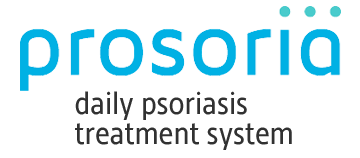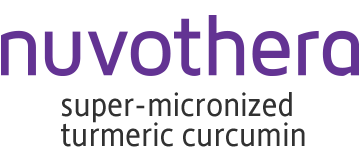What Causes Psoriasis?
26 Oct 18

Psoriasis is a common skin condition and one of the most common autoimmune diseases in the country. People with psoriasis make up about 2.2 percent of the entire U.S. population according to studies from the National Psoriasis Foundation. Estimates suggest that the total direct and indirect health care costs for psoriasis equal about $11.25 billion each year.
Despite the skin condition’s prevalence, the specific cause still requires further study. But what is psoriasis, and will we ever know what causes it? Let’s take a closer look at psoriasis, its potential causes, and possible triggers.
Understanding Psoriasis
Although psoriasis is understood to be a skin condition, it is at its core an immune-mediated disease. Psoriasis causes a speed up in the life cycle of your skin cells. Normally, your skin cells die, shed, and are replaced by new skin cells. With psoriasis, this cycle is sped such that new skin cells form rapidly over old skin cells, building up on your skin’s surface.
The most common psoriasis symptoms include:
- Red patches of skin that are covered by a silvery, thick layer of skin
- Dryness and cracking in your skin
- Itching, burning, and soreness
- Pitted nails
- Stiffness and swelling of the joints
The red patches, scales, and lesions can appear as small spots, similar to dandruff or eczema or be more severe, covering large areas of the body and causing intense pain and discomfort. Symptoms and their severity can depend on the type of psoriasis you are suffering.
Plaque psoriasis is the most common form of the disease, comprising many of the symptoms listed above. Erythrodermic psoriasis is the rarest form of the disease, appearing as widespread, severe redness all over the body with itching, burning, and skin peeling off in sheets.
Psoriasis can also go through cycles of flaring up for several weeks or months before subsiding or going into remission.
What Causes Psoriasis?
The exact cause of psoriasis still isn’t completely understood, though doctors do know that the disease is an immune-mediated disorder. Theories suggest that it may be a problem related to T cells and other components of the immune system. In a healthy immune system, T cells work to defend your body against bacteria, viruses, fungi, and other foreign microbes. When you have psoriasis, your T cells attack your healthy skin cells, thinking that they are fighting off a wound or infection.
These overactive T cells also increase the production of healthy skin cells, more T cells, and neutrophils. Neutrophils in your skin cause redness and are responsible for the pus in pustular psoriasis.
What exactly causes overactive T cells and a malfunctioning immune system? Scientists believe it’s a mix of genetics and certain environmental factors. Family history appears to be the most prominent risk factor. If you have one parent with psoriasis, you have a 10 percent chance of developing the disease at some point in your life. If both of your parents have psoriasis, you have a 50 percent chance of contracting it.
However, there’s no true way of predicting it. Current theories suggest that about 10 percent of the total population will inherit at least one of the genes coded for psoriasis, but only about 2 to 3 percent of the population will actually develop it.
Psoriasis Triggers
Although we may never know what cures psoriasis, avoiding potential triggers can be extremely helpful in preventing flare-ups. Psoriasis usually starts or gets worse because of a trigger or series of triggers. However, a trigger for one person may not be a trigger for you. The most common established triggers include:
- Injury or damage to skin – Psoriasis can commonly appear in parts of the skin that have already undergone injury, damage, or trauma, a response known as the Koebner phenomenon. This includes basic cuts and scratches, bug bites, and severe sunburns. If caught early, psoriasis triggered by the Koebner phenomenon can be treated. Scratching you’re an itch can be a common trigger.
- Stress – Stress has a big impact on your immune system, so it can understandably trigger psoriasis or make an existing flare-up worse.
- Foods, Alcohol, and Smoking - It’s no secret that Your diet and lifestyle choices have a considerable effect on your health. What you put into your body can also be a major trigger for psoriasis.
- Comorbidities - People with one autoimmune condition often get another one. Having one chronic autoimmune condition may trigger the development of psoriasis.
- Infections – Viral, bacterial, and fungal infections can potentially lead to psoriasis, because of the effect on your immune system. Streptococcus, responsible for strep throat, is one of the most common and is particularly associated with guttate psoriasis. In kids, most cases of guttate psoriasis are preceded by a case of strep throat. You can also experience a psoriasis flare-up following bronchitis, tonsillitis, ear infections, and respiratory infections.
- Prescription medications – Certain prescription medications can trigger psoriasis.
- Antimalarials – Medication used to cure or prevent malaria, including chloroquine, Plaquenil, and hydroxychloroquine, can trigger psoriasis.
- Lithium – Lithium is often prescribed for psychiatric disorders, like manic depression. About half of those with psoriasis who take lithium may experience aggravated symptoms.
- Inderal – Used for the treatment of high blood pressure, Inderal can exacerbate psoriasis in about 25 to 30 percent of those who take it.
If you find yourself wondering, “Is psoriasis contagious?” the most important thing to remember is that psoriasis is not contagious whatsoever. Psoriasis skin lesions are not infectious. You can’t “catch” it from other people, nor can you give it to others. Thanks to the wealth of psoriasis treatments available, you can easily control symptoms and put your psoriasis into remission.
If you have any more questions about what causes psoriasis, please visit Prosoria.com today for more information!
Sources:
- https://www.psoriasis.org/content/statistics
- https://www.mayoclinic.org/diseases-conditions/psoriasis/symptoms-causes/syc-20355840
- https://www.psoriasis.org/about-psoriasis
- https://www.psoriasis.org/about-psoriasis/causes

